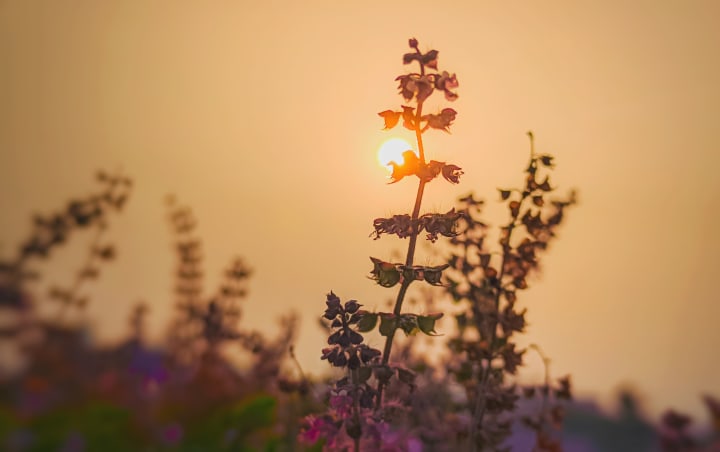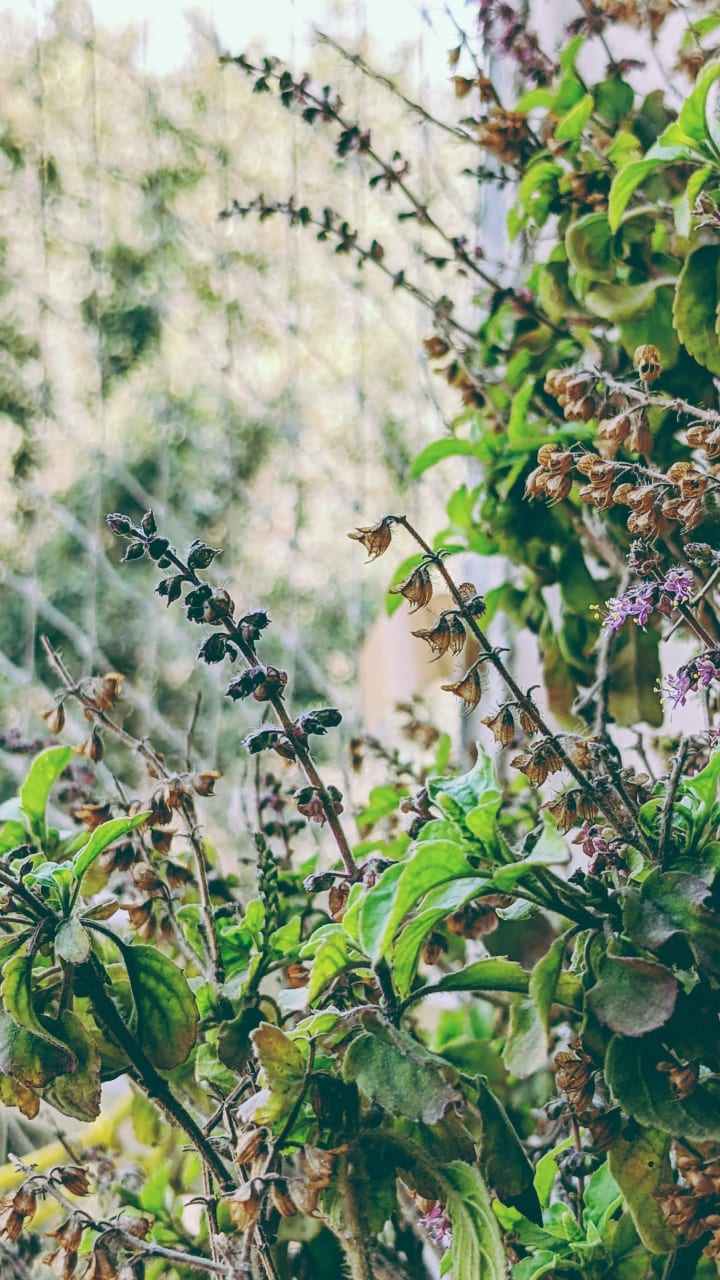Place of Holy basil in nature and nurture
knowledge of sacred plant

Leaves dance in the breeze,
Birds chirp in harmony,
Nature's symphony, a delight to see.
Relation between Tulsi and ayurveda
Tulsi, also known as holy basil, is a herb commonly used in Ayurveda, a traditional system of medicine that originated in India. Tulsi has been used for thousands of years in Ayurvedic medicine to treat a variety of health conditions and is believed to have numerous therapeutic properties.
According to Ayurveda, tulsi is an adaptogenic herb, which means it helps the body to cope with stress and improve overall well-being. It is also believed to have anti-inflammatory, antibacterial, and antioxidant properties.
Tulsi is commonly used in Ayurveda to treat respiratory infections, digestive disorders, skin disorders, and stress-related conditions. It is also used as a natural remedy for headaches, fever, and inflammation.
In addition to its medicinal properties, tulsi is also used in Ayurveda as a spiritual herb and is often considered to be a sacred plant. It is believed to have a purifying effect on the mind, body, and spirit, and is commonly used in religious ceremonies and rituals.

How Tulsi is beneficial to health
Tulsi, also known as holy basil, has been used for thousands of years in Ayurvedic medicine for its numerous health benefits. Some of the potential benefits of tulsi include:
- Reducing stress and anxiety: Tulsi is considered an adaptogenic herb, which means it helps the body adapt to stress and promotes relaxation. It may also help reduce symptoms of anxiety and depression.
- Boosting immunity: Tulsi is rich in antioxidants and has anti-inflammatory properties, which can help boost the immune system and protect against chronic diseases.
- Improving respiratory health: Tulsi has been traditionally used to treat respiratory illnesses like cough, cold, and asthma. It may also help reduce symptoms of allergies and improve lung function.
- Supporting digestive health: Tulsi may help improve digestion and relieve gastrointestinal issues like bloating, nausea, and vomiting. It may also help protect against stomach ulcers.
- Promoting heart health: Tulsi may help lower cholesterol levels, reduce blood pressure, and prevent blood clots, which can reduce the risk of heart disease.
- Supporting skin health: Tulsi has antimicrobial and anti-inflammatory properties, which can help improve skin health and treat conditions like acne, eczema, and psoriasis.
- Enhancing cognitive function: Tulsi may improve cognitive function and memory, and may have potential as a treatment for neurodegenerative diseases like Alzheimer's.
Overall, tulsi is a versatile herb with numerous potential health benefits. However, more research is needed to fully understand its effects and mechanisms of action.

How to introduce tulsi into your daily life
Tulsi, or holy basil, is a versatile herb that can be used in a variety of ways. Here are some common ways in which tulsi is used:
- Tea: Tulsi tea is a popular way to consume the herb. Fresh or dried tulsi leaves can be steeped in hot water to make a fragrant, flavorful tea that can be consumed hot or cold.
- Supplements: Tulsi supplements, including capsules and extracts, are available and can be used to help support overall health and well-being.
- Aromatherapy: Tulsi essential oil is often used in aromatherapy to promote relaxation and reduce stress. It can be diffused in a room or added to a carrier oil for massage.
- Culinary uses: Tulsi leaves can be used to flavor a variety of dishes, including soups, stews, and curries. The herb can also be used to make pesto, chutneys, and other sauces.
- Skincare: Tulsi is used in a variety of skincare products, including creams, lotions, and face masks, due to its antimicrobial and anti-inflammatory properties.
- Religious ceremonies: In Hinduism, tulsi is considered a sacred plant and is often used in religious ceremonies and rituals. The leaves are used to make garlands and other offerings.
It is important to note that while tulsi is generally safe for most people when consumed in moderate amounts, it may interact with certain medications and may not be suitable for everyone. It is always best to consult with a healthcare provider before adding any new supplements or herbs to your routine
About the Creator
Save Health by Nutrition
Healthcare and nutrition professional with decades of experience






Comments
There are no comments for this story
Be the first to respond and start the conversation.